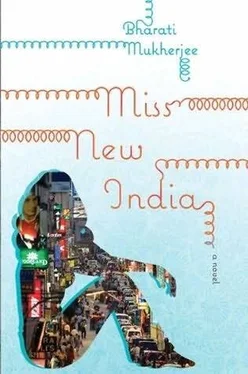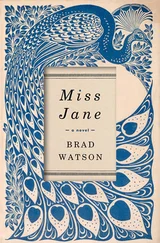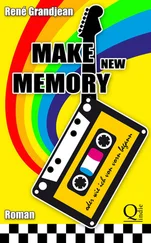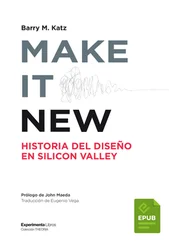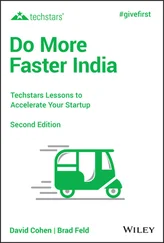"Let me say one thing to the rest of you," Parvati began, after the first two quitters had left. "Am I disheartened? No. We expect dropouts, and we wish them well. Not everyone is cut out for the things we demand. You'll find that English-language skills are only a part of what we expect, and not even the largest part. Language enhancement is largely mechanical-it's your absorptive capacity, your character, your ability to learn and use new ways of thinking and, of course, new facts, that we're interested in. That's why we interviewed and tested you in the first place."
The two-week prep course actually lasted only twelve days because CCI was closed on Sunday, but three more freshers dropped out at the end of the first week. "Gole = hanssment" was gone. So was the sketch artist. The remainders were at least her equals in English: big city, confident, well educated, and slightly older.
In the training manual two sessions were listed under "Getting to Know the American Client" and subdivided into "Topography" and "Culture." According to the manual, knowing a language without knowing the culture was the same as knowing the words of a song but not the music.
Fifteen minutes into the first of these two sessions, Anjali's head was spinning. Wendy's Burger King McDonald's Jack in the Box Little Caesars Papa John's Pizza Hut Round Table Pizza Domino's Popeyes KFC Waffle House IHOP Taco Bell Chili's TGIF Applebee's Red Lobster PIP Kinko's Staples AAMCO AutoZone Speedy Muffler Maaco Midas Muffler Jiffy Lube United American Delta Continental Circuit City Good Guys Best Buy Office Depot OfficeMax Texaco Chevron Amoco Sunoco Arco Mobil Gulf Radio Shack Record Barn Wal-Mart K-Mart Target Costco GE (electronics) GM (cars) GM (mills) Ford Apple IBM Dell Hewlett-Packard, and every one of them with hundreds of outlets and bottom lines, like a medium-size country itself. Food, electronics, transportation, finance, and fashion: all were familiar, but they were shown to exist on a massive scale that rendered them mysterious. Banks, insurance, brokerages… if they had warranties, returns, or breakdowns, eventually someone in India would have to deal with it. Normal Americans, apparently, could name all those national companies and dozens more but did not have personal contact with any of them.
Parvati assured the students on the first day of classes that for every problem, CCI had a tailor-made solution. But Anjali couldn't imagine a company taking a chance on her.
She asked, "Why all these Shacks, Huts, Barns, Cabins, and Alleys? What self-respecting company would call itself a hut or a shack? Why not Mahals and Palaces?"
Parvati had an answer for that too. "Large corporations are alienating. Calling them shacks and huts is a cheap way of humanizing them. When U.S. consumers hear of a Palace or a Mahal, they only think of a Chinese or an Indian restaurant."
In the "Culture" session, Parvati showed one episode each from three popular TV sitcoms, so her students would be familiar with them in case customers referred to characters in Friends or Seinfeld or Sex and the City. Recognize the clients' references; show appreciation for their notion of humor. Anjali didn't find any of them funny.
The TV episodes depressed her. All the characters were surrounded by friends. Anjali had no friends; she had fellow tenants, contacts, mentors. She'd never had a friend, no one she really liked and could bring to her home, or missed when she was out of town, or wished she could get together with to share secrets, as Elaine Benes and Carrie Bradshaw did. Her only friend had been Sonali-di, up to the time of Sonali-di's wedding. She hated these characters; she envied them. Bright and bouncy Carrie didn't work as hard at her job as Sonali-di did, but she still had enough money to splurge more on silly, strappy high heels in one afternoon than Sonali-di made in half a year. Life in India was so unfair.
Most weeknights she lay in bed, going over assigned chapters from the CCI reader. The chapter she had most trouble with was titled "Specialized Language of the Football Gridiron, the Basketball Court, and the Baseball Diamond." She memorized alien phrases that promised to unlock deep mysteries of American English and the psyche of the American consumer. It wasn't easy to visualize a "full-court press" or, for heaven's sake, a "blitz." Why was "knocking the cover off the ball" a good thing to do? How did "throwing a curveball" indicate "an unexpected degree of difficulty"? Then there was "knocking it out of the park." That too was a good thing. But "Grab some pine!" was not. "Stealing a base" and "painting the corner" were commendable. "Flooding the zone" had nothing to do with monsoons. "The bottom of the ninth" had something to do with desperation. Somehow, "three and two, bottom of the ninth" didn't make her tingle with expectation. How was "being born on third base and thinking he'd hit a triple" a venomous insult? And what on earth did "Grow a pair!" mean? She'd never seen an American game, and the names of great players were irrelevant mysteries (could they be any greater than the best of the Indian cricketers?).
She didn't know a thing about American politics, movies, songs, television, or sports, or the coded references they inspired. They were the music, if not the words, of the American language; they were 20 percent of American speech. She asked in class one day, "How can I learn to communicate to Americans if I've never been to their country?"
Parvati offered encouragement. "You're a bright girl, Anjali," she'd say. "That's what I meant by your absorptive capacity." Parvati usually called on her first, expecting the proper, or at least a provocative, answer.
THE COURSE ENDED with a unit that called for role-playing. Parvati led her students through charades in which she pretended to be an American client calling customer service at a make-believe call center in Bangalore. To graduate, the students had to sound convincingly American when answering the client. As homework, the students had to fabricate American autobiographies.
Janey Busey of Rock City, Stephenson County, Illinois, rose from the ashes of Anjali Bose of Gauripur, Bihar, India. On the CCI computer she Google-Earthed the Rock City street map and even found "her" house; she memorized the population (only 315, she noted with horror; not even the poorest, most isolated Indian village was that insignificant); median age-an elderly 33.5-and 99.7 percent non-Hispanic white, whatever that meant. Median family income, twenty-five thousand dollars, just a quarter-lakh; median house value under one lakh dollars.
Insofar as reality can be composed of raw data, Anjali had created Rock City. The rest of her virtual life was inspired by her own unbounded longings. Janey Busey had grown up in a cheerful, wholesome, Midwestern family of five, headed by a veterinarian father and nurtured by a gift-store-owning mother. She replaced sullen Sonali with two good-hearted, extroverted brothers, Fred and Hank. Fred worked in Rock City's only bank and aspired to become a manager. Hank toiled in the office of the town's only insurance firm, though he dreamed of building boats and sailing to Mexico. Puerto Vallarta, to be exact. Vasco da Gama High School and College morphed into Lincoln High, where kids from Rock City had to hold their own against swaggerers from Chicopee and Davis. Then she got swept off her feet by her fantasies and invented sweet summer experiences of working weekdays in the big Wal-Mart in Freeport and flirting with a stock boy named Karl. She brought herself to tears just thinking of poor, slow, inept Karl shipping out to Iraq with hopes of returning with money enough for college.
For the final exam, Parvati arranged for her group of seven surviving students and herself to be transported in the CCI van to Bangalore's Electronic City offices of GlobalSys, an up-and-coming outsourcer for American and Canadian corporations.
Читать дальше
